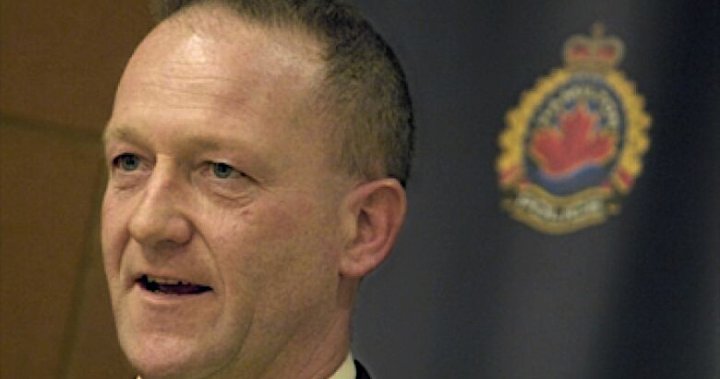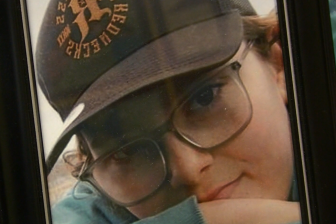In a five-part series titled First Responders in Crisis, Global News is looking at some of the issues that continue to loom around mental health and first responders. We’ll explore what’s being done to help first responders and what has changed over the decade.
December will mark 10 years since a well-regarded Hamilton Police investigator took his own life inside Central Station, putting a spotlight on first responders and post-traumatic stress disorder (PTSD) on the job.
Family and friends of the late Staff-Sgt. Ian Matthews expressed surprise in the days following the Dec. 17, 2013, episode, including Const. Andrew Leng, who was a neighbour.
“He lived two doors down from me, and I watched his kids grow up with mine,” Leng recalled. “So I knew him as more than just a police officer, I knew him as a neighbour … as a person. When he took his life, yeah, it completely shocked me.”
Global News is taking a look at first responders and how the occupation affects an individual’s mental health. In a five-part series, we’ll examine what’s currently being done to help officers, firefighters and paramedics, and how supports have evolved over the last decade.
Global News
Matthews, a 25-year veteran of the force, was characterized by one colleague as the “Wayne Gretzky of investigators” and later commemorated through a fundraiser called the “Blarney Run” raising money for the Suicide Prevention Community Council of Hamilton and to support the Homewood Research Institute in Guelph.
His death opened doors for his immediate family who used the episode to speak openly about his demons and reminded first responders they don’t stand alone in the stigma surrounding mental health.
Hamilton Police Chief Frank Bergen says Matthew’s death got the ball rolling on the services talking about stress disorders which at the time was largely “lacking in acknowledgment and support” for members 10 years ago
“Even legislation shifted in 2016 when the government introduced presumptive PTSD,” Bergen explained. “Presumptive was enough to say that cumulative events and how members are dealing with call after call after call of response of how that can take its toll.”
Photo of Hamilton police chief Frank Bergen at Bayfront Park in May 2022.
Global News
That acknowledgment meant first responders dealing with trauma every day were able to get access to treatment for PTSD much easier than before in the hopes of getting much-needed help before things went too far, according to Dr. Tim Black, a psychologist with Wounded Warriors.
“I think there’s more of an acceptance that we’ve seen now there’s a language for it,” Black says. “I think sort of from the late ’90s, PTSD and trauma sort of became part of the regular lexicon in society and people started talking about it.”
However, he suggests just because people are saying the right things and younger generations are becoming more comfortable with the words, it doesn’t mean the issue has been resolved.
“I’m not entirely sure necessarily that they’re getting any better training yet,” Black says. “Although that is part of what programs, like Wounded Warriors and other folks, are doing … really trying to provide some of that upstream training to deal with the stuff as it comes.”
Dr. Tim Black, associate professor of counselling psychology at the University of Victoria, says first responders seeing trauma regularly can have a cumulative effect that lead to a collapse.
Wounded Warriors Canada
Hamilton Paramedic Superintendent Angela Schotsman agrees that although people are talking about it, the stigma still exists.
“It has gotten better over the last 10 years, but there was a lot of stigma and there still is some stigma. A lot depends on the demographic,” Schotsman says.

Photo of Hamilton paramedic Angela Schotsman, Community Superintendent.
@HPS_paramedics
Hamilton Police Association president Jamie Bannon says her members appreciate some of the work that’s being done, but more is needed.
“In the last two years … we revamped the member support critical incident debriefing, but that’s not enough,” according to Bannon. “Those are two very small pieces … and I have to be honest … Hamilton’s one of the big 10 in all of Canada for police services, and it’s shocking and embarrassing.”
© 2023 Global News, a division of Corus Entertainment Inc.




